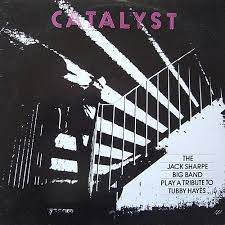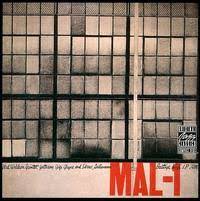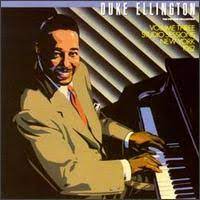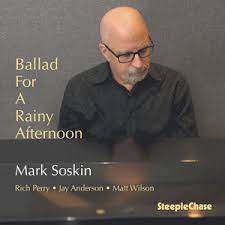
Daily Dose Of Jazz…
Jack Sharpe was born on August 19, 1930 in London, England. He began playing tenor saxophone at age eighteen. He played with Vic Lewis and Teddy Foster in the early 1950s and freelanced in the London area.
While working as a taxi driver in 1953 he played with Dizzy Reece in 1954, then in Tubby Hayes’s band the following year until 1956. Jack played with Mike Senn in the Downbeaters after 1957, worked further with Hayes, and led his own sextet in 1958. He went on to promote and book other musicians.
In the early 1970s Sharpe managed a nightclub where he led the house band on weekends. By 1975 he had left music intermittently to continue driving a cab. He returned to jazz in 1985, playing with Alan Branscombe and leading a Tubby Hayes tribute band.
Tenor saxophonist and bandleader Jack Sharpe, who was mainly active on the London jazz scene, transitioned on November 4, 1994.
More Posts: bandleader,history,instrumental,jazz,music,saxophone

Daily Dose Of Jazz…
George Morrow was born on August 15, 1925 in Pasadena, California. After leaving the military he played with Charlie Parker, Sonny Criss, Teddy Edwards, Hampton Hawes and other musicians who were in Los Anegles, California. He then spent five years from 1948 to 1953 in San Francisco, California often appearing at the Bop City jazz club and working with Dexter Gordon, Wardell Gray, Billie Holiday and Sonny Clark, among others.
During the mid~1950s he recorded five albums with Sonny Rollins and at the end of the decade two with Sonny Stitt. He had been free-lancing around San Francisco clubs when Max Roach and Clifford Brown hired him to play with them after having rejected two other bassists. He appeared on all of the studio albums made by the Clifford Brown-Max Roach Quintet.
After the band dissolved due to the deaths of Brown and Richie Powell in a car accident, Morrow continued recording with Max Roach’s band. He also worked with Anita O’Day in the 1970s before joining the Disney World house band in 1976.
Bassist George Morrow, who never led his own recording date, transitioned on May 26, 1992 in Orlando, Florida.
More Posts: bass,history,instrumental,jazz,music

Daily Dose Of Jazz…
Clifford Arthur Edgehill, originally spelled Edghill, was born July 21, 1926 in Brooklyn, New York. His first professional work was touring with Mercer Ellington in 1948 and by 1953 was touring with Ben Webster. He played with Kenny Dorham’s Jazz Prophets and Gigi Gryce in 1956 and the following year toured with Dinah Washington.
He was a member of the Eddie “Lockjaw” Davis Quartet with George Duvivier and/or Wendell Marshall and Shirley Scott. He appears on several of Scott’s recordings, including her 1958 debut album, Great Scott!. as well as on Very Saxy with Eddie “Lockjaw” Davis, Buddy Tate, Coleman Hawkins, and Arnett Cobb.
As well as recording he also played in quartets led by Horace Silver, Cecil Payne, Hank Mobley, Doug Watkins, Charlie Parker and Annie Laurie. Edgehill remained active through the 1950s, 1960s and 1970s, appearing on several of the Prestige recordings on Mal Waldron’s 1956 debut album, Mal-1, and with Eddie “Lockjaw” Davis and Shirley Scott.
Drummer Arthur Edgehill retired from music in the Seventies.
More Posts: drums,history,instrumental,jazz,music

Daily Dose Of jazz…
Ernest Shepard, Jr. on July 19, 1916 in Beaumont, Texas and played in territory bands in Texas in the 1930s and soon after worked in California in the bands of Phil Moore and Gerald Wilson.
For a short time he played in a quintet with Charlie Parker and Dizzy Gillespie in 1945. Later that year he recorded as a vocalist with Lem Davis and worked with Eddie Heywood in 1945-1946.
In the Fifties he worked with Slim Gaillard, Gene Ammons, Sonny Stitt, and Johnny Hodges, but played little in the latter half of the decade. In 1962 he became a member of Duke Ellington’s band and accompanied him on tours of Europe through 1964.
He worked with Paul Gonsalves in 1963 and Johnny Hodges in 1964 then moved to Germany in 1964. He took up work as a session musician for studio recordings, radio, and television.
Double-bassist and vocalist Ernest Shepard transitioned on November 23, 1965 in Hamburg, West Germany.
More Posts: bass,history,instrumental,jazz,music

Daily Dose Of Jazz…
Mark Soskin was born on July 12, 1953 in Brooklyn, New York. Attending Colorado State University he pursued classical piano studies but his interests in jazz music grew and by 1973 he enrolled in Berklee College of Music in Boston, Massachiusetts. He studied composition and arranging. While there he began working professionally until moving to San Francisco, Califonia and eventually going on to work with some of the west coast’s finest players.
Shortly after arriving in San Francisco, he was introduced to Pete Escovedo and along with his daughter Sheila. E they toured and recorded as Azteca, a group in which Soskin’s keyboard, writing, and arranging talents were showcased. Eventually, the group, including trumpeter Tom Harrell, went on to record twice for Fantasy Records. Enlisted in Cobham’s band for two years produced two recordings for Columbia. Between tours for Cobham, Soskin did a tour and live recording for the CBS All Stars with Tom Scott, Alphonso Johnson and Steve Khan. At this time Soskin was an active session player at Fantasy.
Mark signed his first recording contract with Prestige titled Rhythm Vision with Benny Maupin and Harvey Mason among others. Introduced by Orrin Keepnews to Sonny Rollins, the two started a fruitful collaboration that lasted 14 years. By 1981 he was living in New York City as an active sideman and leader.
He has been written up in numerous music publications, including Ira Gitler and Leonard Feather’s Biographical Encyclopedia of Jazz and The Jazz Book by Joachim E. Berendt. Mark Soskin is featured in the film documenting latin jazz artists entitled Calle 54. Pianist Mark Soskin has recorded 10 albums as a leader, three as co-leader and continues to maintain a busy tour schedule as well as giving master classes, workshops, teaches privately and is on the faculty of The Manhattan School Of Music.



